
Esperanto is the world's most widely spoken constructed international auxiliary language. Created by the Warsaw-based ophthalmologist L. L. Zamenhof in 1887, it was intended to be a universal second language for international communication, or "the international language". Zamenhof first described the language in Dr. Esperanto's International Language, which he published under the pseudonym Doktoro Esperanto. Early adopters of the language liked the name Esperanto and soon used it to describe his language. The word esperanto translates into English as "one who hopes".

Jacob Ludwig Karl Grimm, also known as Ludwig Karl, was a German author, linguist, philologist, jurist, and folklorist. He is known as the discoverer of Grimm's law of linguistics, the co-author of the monumental Deutsches Wörterbuch, the author of Deutsche Mythologie, and the editor of Grimms' Fairy Tales. He was the older brother of Wilhelm Grimm; together, they were the literary duo known as the Brothers Grimm.
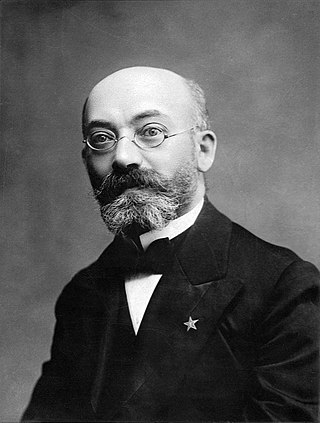
L. L. Zamenhof was an ophthalmologist who lived for most of his life in Warsaw. He is best known as the creator of Esperanto, the most widely used constructed international auxiliary language.

Jens Otto Harry Jespersen was a Danish linguist who specialized in the grammar of the English language. Steven Mithen described him as "one of the greatest language scholars of the nineteenth and twentieth centuries."

Rasmus Kristian Rask was a Danish linguist and philologist. He wrote several grammars and worked on comparative phonology and morphology. Rask traveled extensively to study languages, first to Iceland, where he wrote the first grammar of Icelandic, and later to Russia, Persia, India, and Ceylon. Shortly before his death, he was hired as professor of Eastern languages at the University of Copenhagen. Rask is especially known for his contributions to comparative linguistics, including an early formulation of what would later be known as Grimm's Law. He was elected as a member to the American Philosophical Society in 1829.

Lidia Zamenhof was a Polish writer, publisher, translator and the youngest daughter of Klara (Silbernik) and L. L. Zamenhof, the creator of Esperanto. She was an active promoter of Esperanto as well as of Homaranismo, a form of religious humanism first defined by her father.
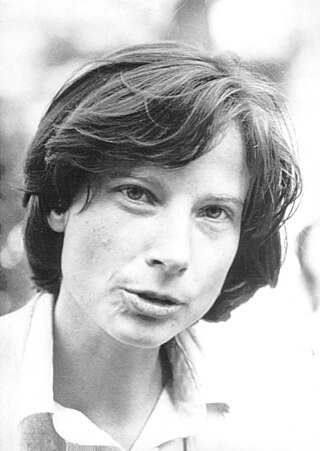
Claudia Schmölders, also Claudia Henn-Schmölders is a German cultural scholar, author, and translator.

Detlev Blanke was a German Esperantist. He was an interlinguistics lecturer at the Humboldt University of Berlin. He was one of Germany's most active Esperanto philologists and was from 1991 to 2016 both the chair of the Gesellschaft für Interlinguistik and the editor of its newsletter, Interlinguistische Informationen. He and his wife, Wera Blanke, were especially interested in the evolution of language, particularly in the development of terminology for the constructed language, Esperanto, and questions of sociolinguistics. Blanke made a study of Eugen Wüster's work toward common international terminology and international standardization.

Aleksandr Dmitrievich Dulichenko is a Russian-Estonian Esperantist, linguist, and an expert in Slavic microlanguages currently living in Estonia. He is a professor at the University of Tartu in Tartu, where he is the head of the department of Slavic studies.
Ino Kolbe, born Ino Voigt, was a German Esperantist and author.
Alicja is a Polish language given name that is equivalent to Alice in English. Notable people with the name include:
Jacob Louis Mey is a Dutch-born Danish professor of linguistics, specializing in pragmatics. He is currently Professor Emeritus in the Institute of Language and Communication at the University of Southern Denmark, from which he retired in 1996.
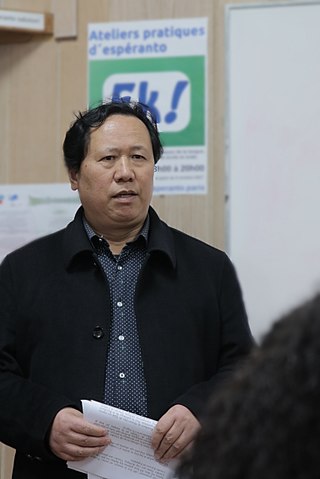
The Esperantist of the Year is an honorary designation bestowed each year by the editors of the Esperanto-language monthly La Ondo de Esperanto. The award recipient is selected by an international jury led by Halina Gorecka, the Russian publisher of the magazine.

Ursula Lehr née Leipold was a German academic, age researcher and politician. She was the first professor of gerontology in Germany, with a chair at the University of Heidelberg from 1986. She served as federal minister of youth, family, women and health from 1988 to 1991. She was a member of the Bundestag from 1990 to 1994. Returning to science, she founded the German centre for research on aging (DZFA) of the University of Heidelberg in 1995, and was head of the German National Association of Senior Citizens' Organizations (BAGSO) from 2009 to 2015.
Claus Killing-Günkel, in Esperanto also known as Nikolao Günkel, is a German teacher and interlinguist.
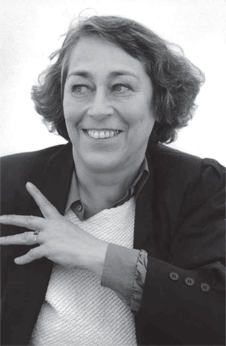
Christel Hoffmann is a German theater scholar, dramaturge and pedagogue.

Alicja Grześkowiak is a Polish politician who served as Marshal of the Senate of Poland from 21 October 1997 to 18 October 2001.

Marjolijn Verspoor is a Dutch linguist. She is a professor of English language and English as a second language at the University of Groningen, Netherlands. She is known for her work on Complex Dynamic Systems Theory and the application of dynamical systems theory to study second language development. Her interest is also in second language writing.

Alicja Kwade is a Polish-German contemporary visual artist. Her sculptures and installations focus on the subjectivity of time and space. Kwade lives and works in Berlin.
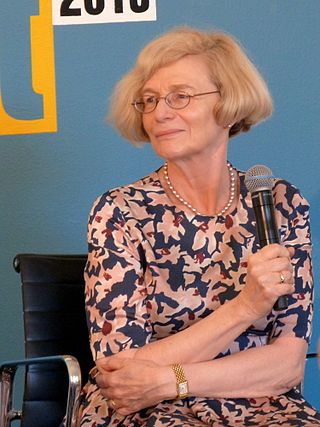
Deborah Judith Vietor-Engländer is a British literary scholar.
















